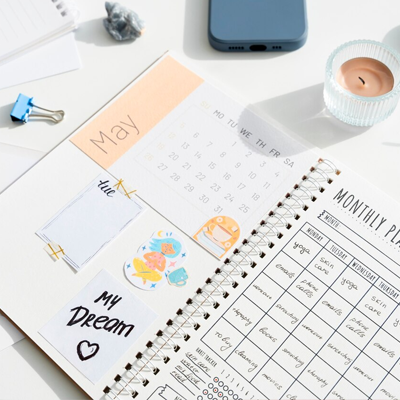Pregnancy Calendar
02-04-2024
18:55

Pregnancy can be one of the most exciting times of your life. However, significant changes occur in your body and your baby every day. A pregnancy calendar can help you track these changes step by step and better understand each stage of pregnancy.
Month 1: During the first month of pregnancy, your baby is still an embryo and your cells are beginning to divide. Your period may be late, and a pregnancy test may show a positive result.
Month 2: Your baby's organs begin to develop, and their heartbeat can be heard on ultrasound. Now you can really start to become aware of your pregnancy.
Month 3: Your baby is now a fetus, and its arms and legs are becoming more defined. Pregnancy symptoms like morning sickness and fatigue may become more pronounced.
Month 4: Your baby's gender can be determined by ultrasound. You may notice a noticeable lump in your abdomen, and you may feel your baby's first movements.
5 Months: Your baby's ears and eyes are further developed. Now you can feel your baby's movements more frequently and distinctly.
6 Months: Your baby's skin thickens and body weight increases. During this time, your uterus continues to grow, and symptoms like back pain may increase.
7th Month: Your baby's lungs are developing and he or she is practicing breathing before birth. During this period, the need to urinate more frequently may increase.
Month 8: Your baby's brain development accelerates and preparations for birth are complete. You may now feel contractions, which are signs of labor.
Month 9: Your baby's growth is almost complete and they're ready for birth. You'll begin to anticipate the onset of labor. A pregnancy calendar can help you plan ahead and gain accurate information about what to expect at each stage of your pregnancy. However, every pregnancy is different, and you should consider your doctor's recommendations based on your individual needs.
Month 1: During the first month of pregnancy, your baby is still an embryo and your cells are beginning to divide. Your period may be late, and a pregnancy test may show a positive result.
Month 2: Your baby's organs begin to develop, and their heartbeat can be heard on ultrasound. Now you can really start to become aware of your pregnancy.
Month 3: Your baby is now a fetus, and its arms and legs are becoming more defined. Pregnancy symptoms like morning sickness and fatigue may become more pronounced.
Month 4: Your baby's gender can be determined by ultrasound. You may notice a noticeable lump in your abdomen, and you may feel your baby's first movements.
5 Months: Your baby's ears and eyes are further developed. Now you can feel your baby's movements more frequently and distinctly.
6 Months: Your baby's skin thickens and body weight increases. During this time, your uterus continues to grow, and symptoms like back pain may increase.
7th Month: Your baby's lungs are developing and he or she is practicing breathing before birth. During this period, the need to urinate more frequently may increase.
Month 8: Your baby's brain development accelerates and preparations for birth are complete. You may now feel contractions, which are signs of labor.
Month 9: Your baby's growth is almost complete and they're ready for birth. You'll begin to anticipate the onset of labor. A pregnancy calendar can help you plan ahead and gain accurate information about what to expect at each stage of your pregnancy. However, every pregnancy is different, and you should consider your doctor's recommendations based on your individual needs.
